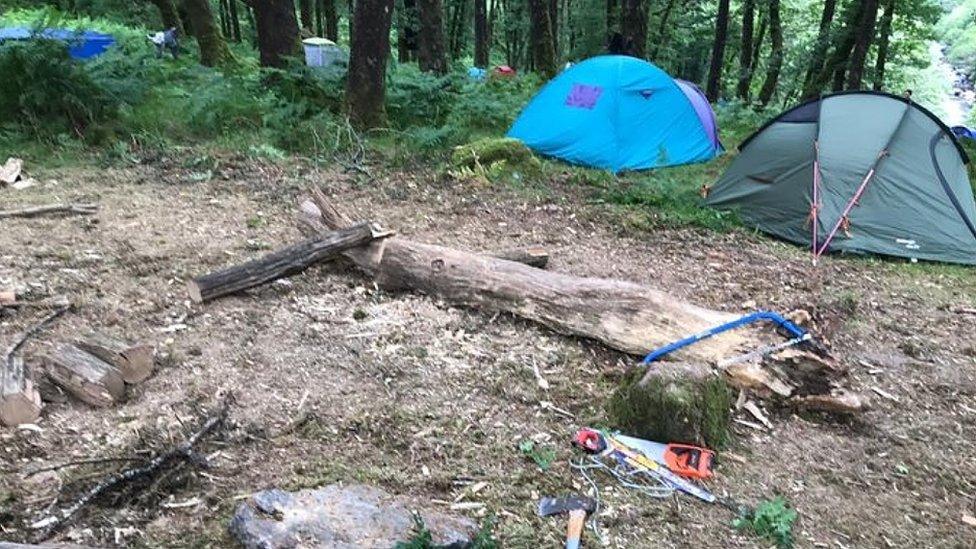Dartmoor protesters march over right to wild camp
- Published
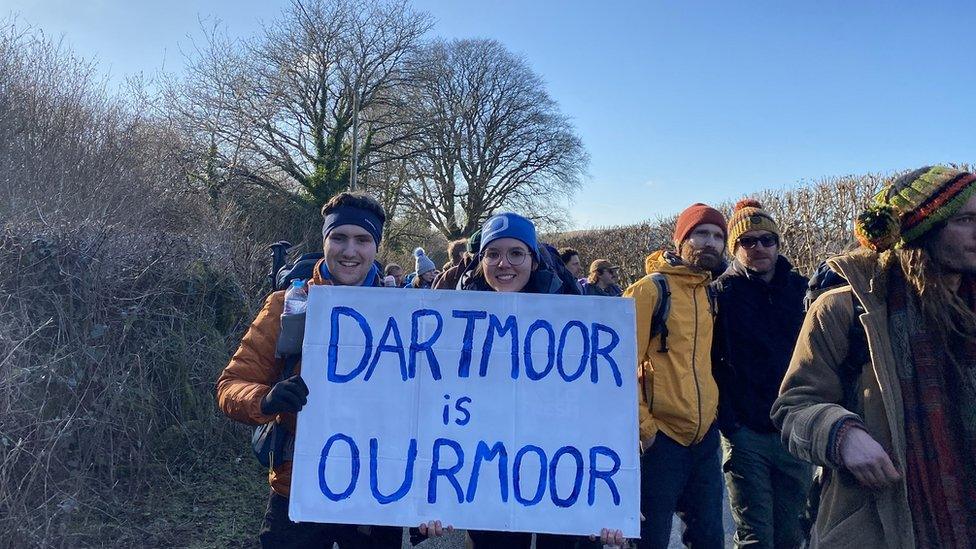
Protesters walked to Stall Moor to argue for the right to wild camp
Thousands of people protested in Dartmoor on Saturday in opposition to the loss of wild camping rights.
It comes after a decision by the high court to outlaw the long-held custom of camping on the moor without asking the landowner's permission.
Dartmoor National Park Authority has struck a deal with landowners to pay them to let wild camping take place.
Landowners said this would help to protect the land, but environmental groups argue it restricts access.
Environmental activist organisation Right to Roam, which organised the march, estimated 2,000 people took part.
The walk, which stretched for nearly a mile, went from the picturesque village of Cornwood up to the top of Stall Moor, which is owned by Mr and Mrs Darwall, who brought the original case against the park authority.
Many of the protesters were local, coming from Plymouth and other parts of Devon, but some travelled from as far as Essex and the Midlands.
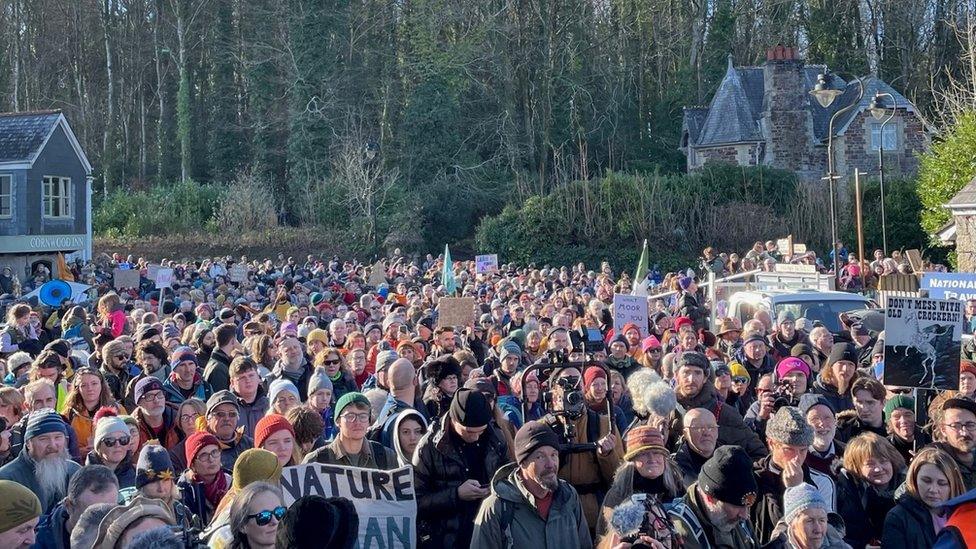
Nearly 2000 people gathered in the main square of Cornwood village before marching to the moor
The ongoing disagreement has gathered national interest because Dartmoor was the only area of England and Wales where under a local law there had been an assumed right to wild camp without the landowner's permission.
Protesters - a mixture of families, young people and older couples - have told the BBC wild camping brings them significant mental and physical benefits.
Julian Adams, who came over from the Isle of Wight, said: "All my childhood was spent here wandering around Dartmoor - it seemed a free, wild space and it's been taken away for the future generation. That's why I brought my kids up here to join the protest."
But the landowners - of which there are 15 - have seen the damaging impacts of wild camping.
Russell Ashford, a farmer whose land includes Buckfastleigh Moor, told the BBC that dozens of times a year he has to clean up after campers who do not treat the land with respect, including leaving behind human faeces.
"In terms of litter, there's beer cans, bottles, syringes sometimes. And there's a risk to people, a risk to animals grazing and a risk to the environment," he said.
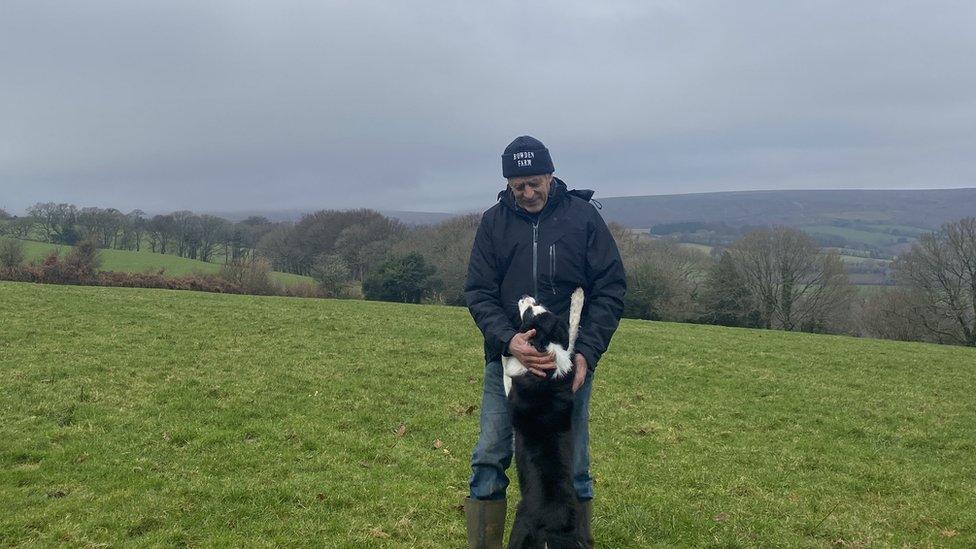
Russell Ashford has had to regularly clean the common land which sits on his farm - a danger he says to his animals and others
He hopes the new system will allow him to use the funding to put up better signage and monitor any damage.
Rebecca Trebilcock, one of the volunteers at the march, who is an expedition leader for young people on Dartmoor, told the BBC: "I do empathise with the landowners, but it is a very small fraction of campers.
"Three point one million people visited Dartmoor last year, and only 100 people got in trouble".
She thinks that "education over privatisation" is the way forward.

Rebecca Trebilcock is hiking and wild camping around the 160 tors of Dartmoor
But both the landowners and the protesters agree that funding for Dartmoor National Park Authority, which pays for rangers to manage the land, is tight.
Luke Pollard, Labour MP for Plymouth Sutton and Devonport, tweeted on Friday: "Dartmoor National Park has already had huge chunks of its budget slashed in Tory cuts since 2010 and now they're having to pay out more."
The government currently provides £49m to National Park Authorities in the UK.
A Department for Environment, Food and Rural Affairs spokesperson did not comment on the funding issue, but said they "welcome the ongoing efforts of the authority and the local landowners to reach a resolution".
- Published20 January 2023
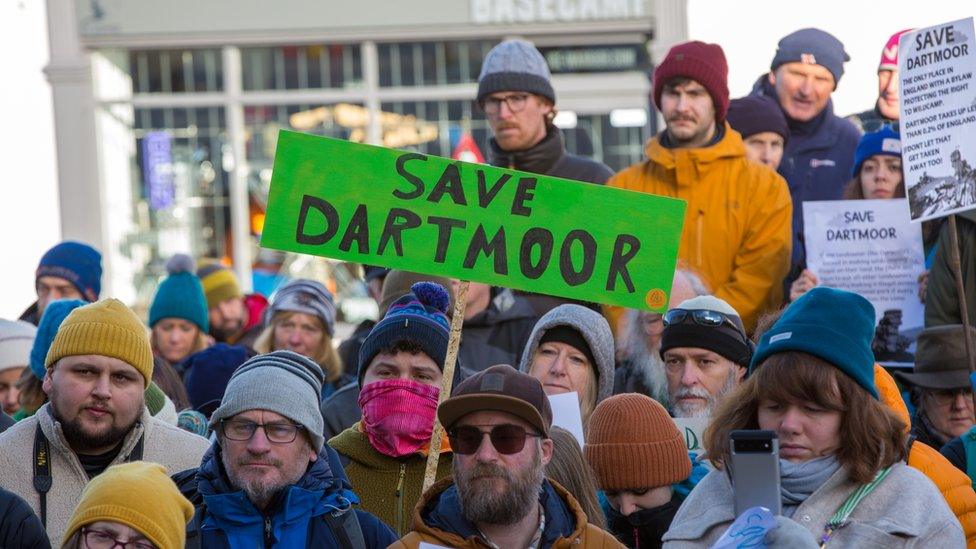
- Published19 January 2023
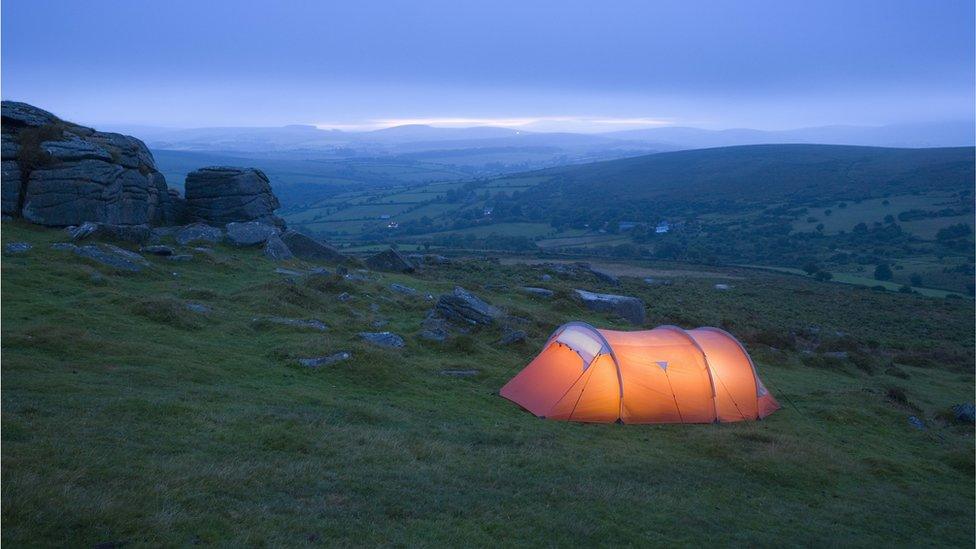
- Published19 January 2023
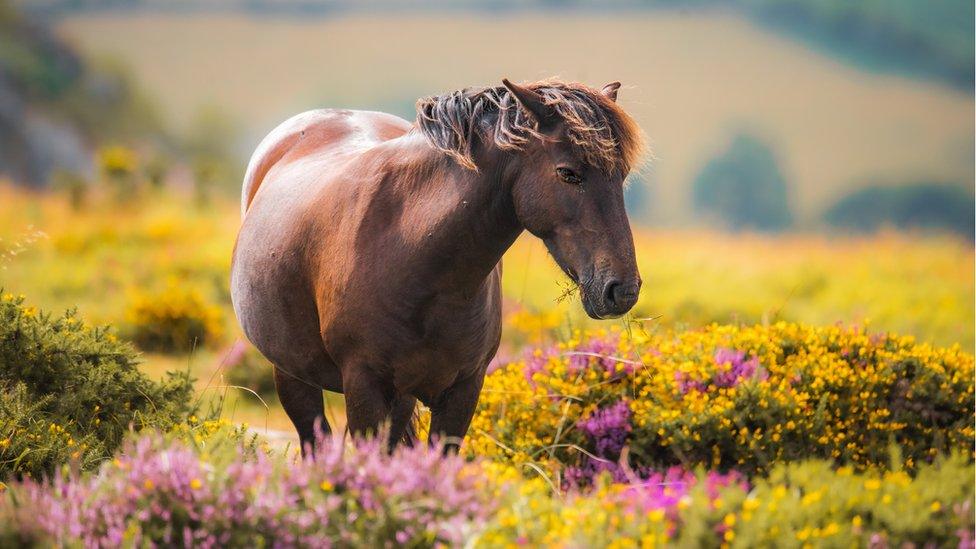
- Published13 January 2023
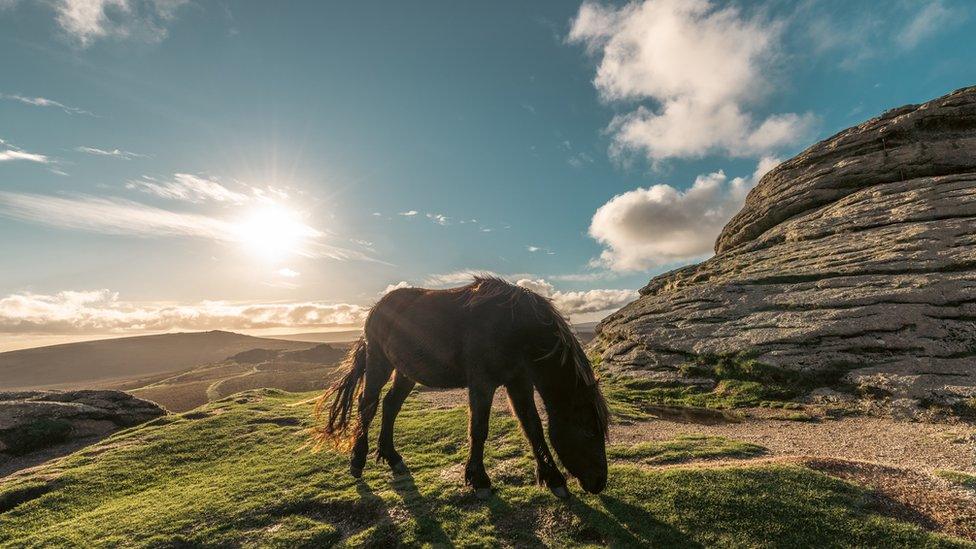
- Published22 July 2020
